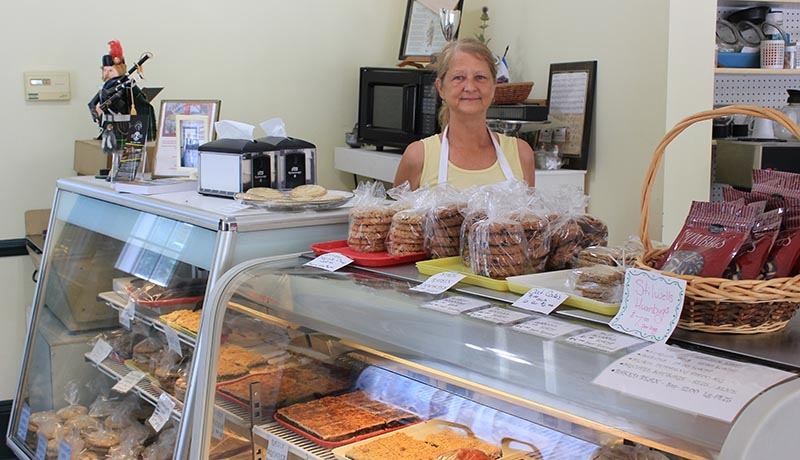Cheryl Muir of Muir’s Bakery in Maxville has seen a 10 per cent increase of the price of flour and other wheat-based products. She had no choice but to increase the prices of her goods, even though her local clientele is already struggling with other increases, such as high electricity costs.
“Our supplier, who is a distributor, because we don’t deal with the manufacturer directly, had to raise the price of our flour by 10 per cent. To stay afloat, I had no choice but to raise my prices by 10 per cent. 10 per cent is a big jump for us and our customers,” said Muir.
“I hate having to raise my prices but with the hydro cost and the minimum wage increase coming, I had no choice. If you go to a mom’s & pop bakery in Ottawa they will have higher prices because of their bigger overhead. So my prices are still competitive, but the economy and the income for our area is also much different than Ottawa.”
Muir knows that, through her experience, once the wheat prices go up and they raise the prices on flour, even if better years come for the wheat growers of North America, the prices of flour for bakeries will not go down.
Todd Austin of Grain Farmers of Ontario, explained that Chicago, Kansas and Minneapolis winter wheat yields had very low protein. Protein in wheat is the measure used to determine the quality.
Major flour manufacturers will have to blend in high-protein spring wheat instead of the low-protein American winter wheat. America, as a whole, will have to rely more on Canadian high-protein spring wheat, which will be harvested later this year. Spring wheat has a higher cost than winter wheat and production in the US has been in decline for years. American farmers would rather use their acreage for more profitable crops such as soybeans or corn.
This year, drought conditions in western Canada have also affected spring wheat yields and the cost will be even higher. Wheat is traded as a commodity and the weather conditions for both the US winter wheat and Canada’s spring wheat has reduced the supply and increased the demand which brings the prices up. Flour manufacturers will therefore need to use more high-protein spring wheat in their blends and will bill the extra cost to distributors which will then trickle down to local bakeries like Muir’s.
Le Petit Pain in Hawkesbury is also affected by the rising price of flour. Roman Eugster, the co-owner, expects the prices to go even higher.
“We’ve seen a one dollar increase for 20 kilos of flour and because of the bad year for wheat, I expect it to be raised another two dollars per 20 kilos. The prices were stable for the last four years, we will have to make due.”
When asked if he would raise the prices of his goods, Eugster said he would wait for the minimum wage increase in January.
“The prices of flour is always a concern but the minimum wage increase is what will make us raise the prices of our goods. I know Muir’s bakery and they also have to cope with high rural electricity cost. I believe that it will be hard times for all small businesses. Everything is increasing,” concluded Eugster.
For Vert Fourchette in Vankleek Hill, the increase will affect their pricing of goods but Mario Lacelle, the co-owner, says it’s not as bad as in 2007-2008 where he saw the price of flour double.
“I stick with my suppliers most of the time, but when their prices fluctuate too much I can get my flour at CostCo who guarantees more stability in their prices. The increase of the minimum wage is what will definitely drive our prices up. There is so much we can absorb, now we will have no choice but to start charging more for our products. We will increase the prices in increments,” said Mario Lacelle.


